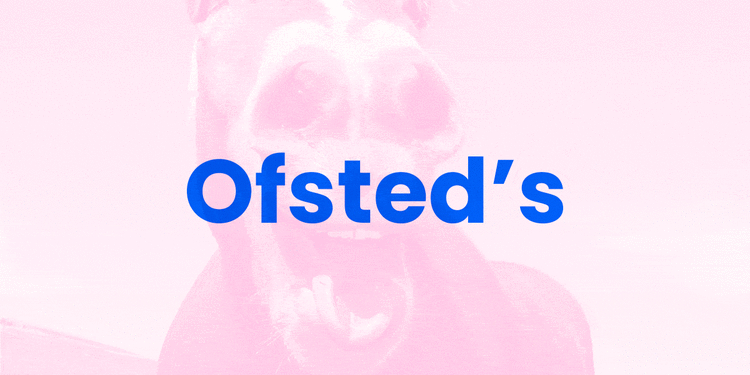Ofsted’s new rules: straight from the horse’s mouth

Ofsted has always focused on the quality of training.
And providers know this. But since the new standards were introduced and apprenticeships shifted from assessing to learning, quality looks very different. Ofsted now wants to see evidence of benchmarking learning, the progression of learning and how learning impacts outcomes – which is a hard thing to prove… until now.
At their recent event, Ofsted’s national lead for apprenticeships, Paul Cocker, spoke about the importance of quality. He said that 40% of providers don’t meet Ofsted’s minimum requirements because they don’t focus on quality – or simply don’t know what quality should look like. Some providers use shortcuts – like Accreditation of Prior Learning (APL) – in their initial assessment or fail to record progress against KSBs. These are poor quality measures in the eyes of Ofsted – so what should providers be doing?
Initial assessment
Ofsted wants to see a quality initial assessment for every apprentice. Like before, the initial assessment should identify the knowledge, skills and behaviors (KSBs) of the apprentice at the start of the programme – but it should also benchmark their learning. Apprentices will need to rate their understanding of each KSB, and this can be used as a benchmark to track their progression of learning throughout their programme.
Benchmarking learning is tricky. Find out how you can use OneFile to benchmark learning.
Curriculum
When you’ve benchmarked your apprentice’s learning, you can plan activities to help them develop. To meet their quality guidelines, Ofsted wants to see evidence of planning, logical training and grading. They also want to see how each training activity impacts the apprentice’s learning outcome.
Milestones
Everyone has a different learning journey, so milestones will be different for different apprentices. Ofsted wants to see that learning and competency are tracked, so tutors know when their apprentices are ready for assessments and reviews. They also want to see that progress is monitored throughout the programme – not just at milestones – so extra support can be given to apprentices that may have fallen behind.
Gateway
At the gateway, quality is all about transparency. Ofsted wants to see that employers and providers work together to identify when apprentices are ready. They both have access to learning portfolios and progress reports, and know that the apprentice has had the opportunity to put their training into practice.
These are new to everyone. Providers need to follow Ofsted’s lead and really focus on learning – only then will they meet the quality guidelines. Providers have to benchmark learning, evaluate learning, record evidence of the progression of learning, and show how training activities impact learning outcomes. Easier said than done? Not with OneFile.
Our learning software is specifically designed for the new standards. You can benchmark, record, evaluate and track learning all the way to the gateway. It has everything you need to deliver apprenticeships the way Ofsted wants you to.
To find out more about OneFile and how it meets Ofsted’s new quality guidelines, download your free Ofsted guidance pack.
Inside, you’ll find out exactly how OneFile works, how you can use it to deliver standards, how it meets Ofsted’s framework, and what other providers think.
Supporting over 700,000 users worldwide, OneFile is the UK’s leading eportfolio for learning and development – and winner of the 2017 Queen’s Award for Innovation. But we do more than sell software. We believe people deserve to reach their full potential – that’s why we’ve made it our mission to shape the futures of 1 million people by 2020.
To achieve this, we’ve developed OneFile into an all-in-one learning software ideal for all types of vocational training. It’s a training eportfolio, assessment software, learning environment and CPD tracker – with more features than any other on the market.











Responses